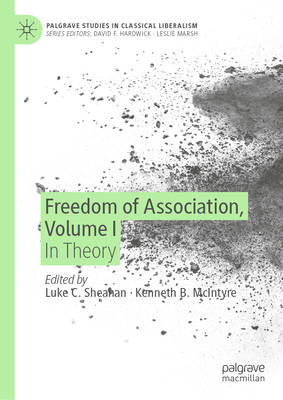
- Afhalen na 1 uur in een winkel met voorraad
- Gratis thuislevering in België vanaf € 30
- Ruim aanbod met 7 miljoen producten
- Afhalen na 1 uur in een winkel met voorraad
- Gratis thuislevering in België vanaf € 30
- Ruim aanbod met 7 miljoen producten
Zoeken
Freedom of Association, Volume I
In Theory
€ 147,95
+ 295 punten
Omschrijving
This two-volume set addresses freedom of association, one of the central liberties associated with classical liberalism. The concept of freedom of association has been largely neglected by political and moral philosophers over the past several centuries, despite the fact that the freedom to associate with fellow citizens (and non-citizens) is an implication of almost every version of liberalism capaciously considered. These two volumes take freedom of association seriously both as a theoretical concept and as an integral part of any genuine liberal regime. This first volume considers freedom of association from a theoretical perspective. It considers the freedom of association in conversation with negative liberty, moral pluralism, communitarianism, polycentric democracy, and republicanism.
Specificaties
Betrokkenen
- Uitgeverij:
Inhoud
- Aantal bladzijden:
- 197
- Taal:
- Engels
- Reeks:
Eigenschappen
- Productcode (EAN):
- 9783031924361
- Verschijningsdatum:
- 27/09/2025
- Uitvoering:
- Hardcover
- Formaat:
- Genaaid
- Afmetingen:
- 150 mm x 201 mm
- Gewicht:
- 385 g

Alleen bij Standaard Boekhandel
+ 295 punten op je klantenkaart van Standaard Boekhandel
Beoordelingen
We publiceren alleen reviews die voldoen aan de voorwaarden voor reviews. Bekijk onze voorwaarden voor reviews.







